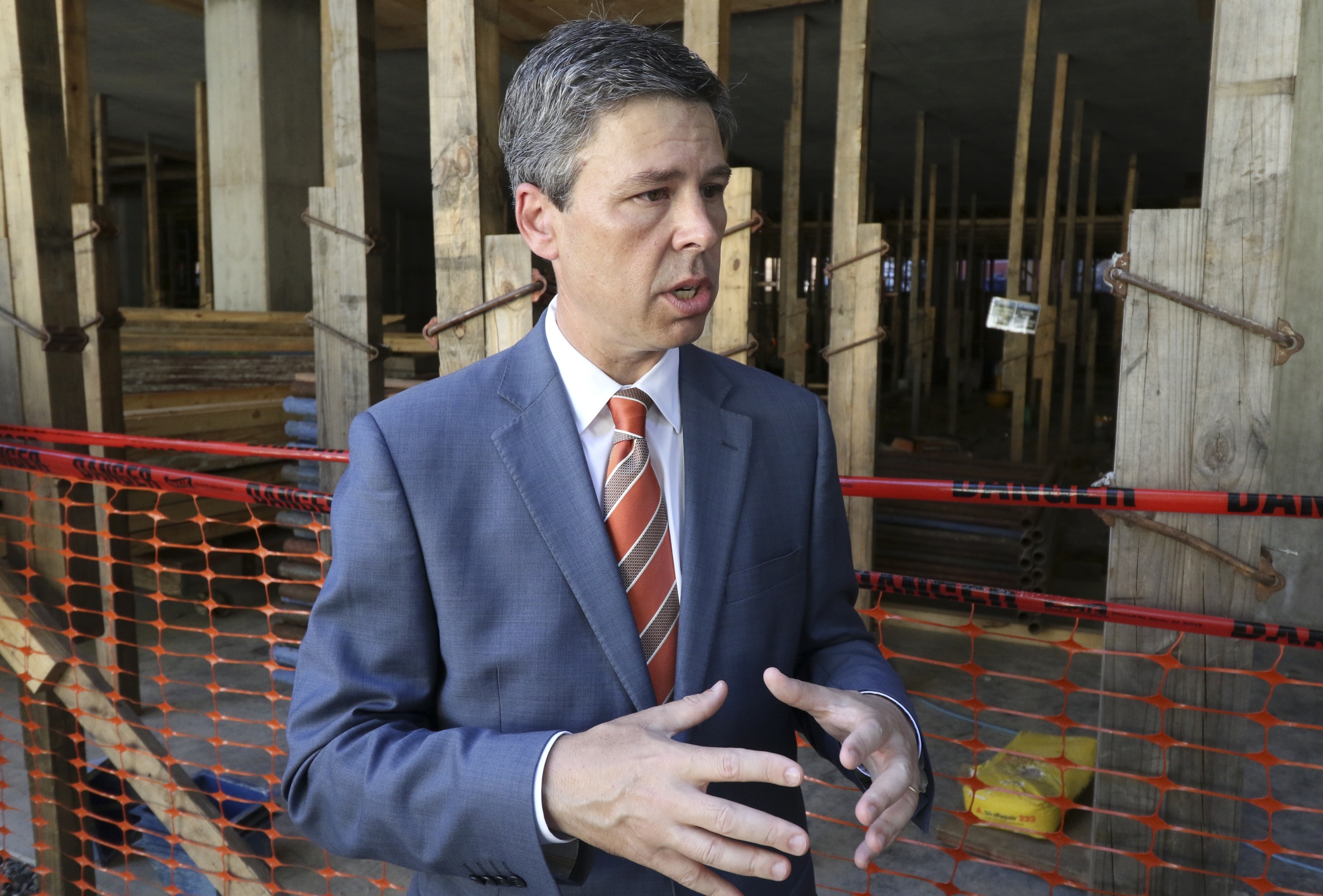How the new tax incentive works
Properties are deeded to the city’s Health, Educational Housing Facility Board and then leased back to the developers for the term of the tax break. The developers taxes are then frozen at the current rate, except for the school’s portion of the property taxes. In order to qualify for this tax incentive, the value of the project must be equal to or greater than 60 percent of the total project cost and at lease half of the rental units built must be available to low/moderate income residents, the elderly and handicapped. Both the City Council and the Hamilton County Commission must also approve the agreement before it goes into affect. After 10 years, the taxes are phased back in at 20 percent per year on present value plus a sum at least equal to the school’s portion of the property taxes.
City leaders aren't giving the public ample time to talk with their elected officials publicly before tonight's scheduled vote on changes to the city's controversial housing tax incentive program, claim several downtown property owners.
"Were they just trying to get this rushed in after a holiday weekend?" asked Helen Burns Sharp, a retired city planner and founder of the watchdog group Accountability for Taxpayer Money.
After months of critics calling for reform, Mayor Andy Berke announced in mid-July on the construction site of the 700 Block apartments that he would be making significant changes to one of the city's strategies to build up rental property downtown, the payment-in-lieu-of-taxes program, better known as the PILOT program.
While Berke called the program that offers developers a 10-year tax break to build apartments downtown a success, he said it needed to be retooled to focus on affordable housing. He announced the city and county would end their agreement with River City Co., which had overseen the program, and the city would take responsibility for the program. But he didn't offer any significant details about his proposed changes. His staff said details would be forthcoming, but the City Council wouldn't have to vote on the changes.
Almost two months later, though, a resolution recently placed on the City Council agenda calls for a first-reading vote tonight.
Critics are questioning why the proposed changes aren't being discussed first in committee, which is the typical practice of the City Council for hot-button issues.
The public has been given no time to address the City Council on a major public policy that potentially forgives millions of dollars in taxes to developers and affects all city and county residents, said Tresa McCallie, who lives in the Southside. Once an item is placed on the agenda, the city policy states residents aren't allowed to comment during council meetings.
"I consider this new PILOT initiative a very important document with great impact on our city," she wrote to council members in an email sent Saturday after finding out about the upcoming vote. "Our schools, our police, our fire department, our parks, our libraries, and our job training programs - to name a few - are all in need of additional funds. For this reason, I find it imperative that we scrutinize carefully any document that would reduce funding for our vital city services."
Members of ATM have asked the City Council to delay the vote to give the public time to weigh in.
Councilman Ken Smith said he agrees the public needs more time. He said any incentive program should be vetted through the council's Economic and Community Development Committee and allow public input.
Councilman Chris Anderson, who chairs that committee, said resolutions don't normally go through committees, but he will consider asking for a delay so this one can do so. Anderson said the public doesn't automatically get to comment when city policies are in a committee meeting, so he doesn't know if it will make a difference.
Berke's director of economic and community development, Donna Williams, said the public has had time to address the City Council at any of its regular meetings for more than a month after the mayor announced he was changing the program on July 19.
She also said the mayor's office met with several members of Accountability for Taxpayer Money early in the summer to talk about their concerns with the existing incentive program.
But McCallie questioned how the public could have known about the upcoming vote when the mayor's office originally said none would be needed and the details of the new PILOT program have only trickled out piecemeal in the last few weeks.
Anderson said he was working to answer the concerns McCallie emailed him over the weekend.
The City Council's vote only affects the city's side of property taxes and Hamilton County Mayor Jim Coppinger said because he and Berke ended their agreement with River City Co., he will not ask the County Commission to approve a new formal agreement with the city. But, he said if the city brings a PILOT request to him, he will ask the commissioners to examine the agreement based on its merit and they will decide if they want to forgive the county's portion of taxes to developers.
One of the biggest controversies surrounding the PILOT program stemmed from whether the tax incentives given to developers have actually given residents more options for affordable housing in a popular part of town where rent is among the fastest growing in the nation.
Critics say the bulk of the new housing was market rate and only a small share were affordable units the incentives were supposed to achieve.
When Berke said his office was revamping the program, he promised the new incentive package would address that issue. He said at the time that at least half of the rental units would have to be set aside at an affordable rate for developers to get the 10-year tax break.
According to the new resolution, developers will have to set aside at least 50 percent of their rental units at 80 percent of the area median income or less to be considered for a tax break. Based on the current federal guidelines that would mean a subsidized rental unit would cost a one-person household about $857 a month.
Sharp said the new requirements don't seem to benefit low-income residents who still won't be able to afford the rent downtown, and this is a symptom of a greater problem in Chattanooga.
"Most interpretations made by the government in Chattanooga seem to go in favor of development interests, few seem to favor the public's interest or existing neighborhoods," she said.
Williams said the new policies were significantly better because the old guidelines only required developers to set aside 20 percent of their units at 80 percent of the area median income. She also said there are new incentives added if a developer is willing to rent his units to residents who meet a lower income level.
The new program will also extend past downtown and be available to any developer in the city limits who meets the new requirements, she said, but the city will first evaluate how the development affects neighborhoods.
Yet what critics of the PILOT program really want is for city leaders to encourage a new level of ethical behavior for developers and their attorneys to live up to when it comes to an issue that affects the whole community, said Franklin McCallie, Tresa's husband and an active community member.
"It is Mayor Berke who ought to rise up in front of developers and their attorneys who are coming to our city from Chattanooga and elsewhere and say to them: 'When you work in Chattanooga, keep your eyes turned toward honor, truth and duty,'" he said.
Contact staff writer Joy Lukachick Smith at jsmith@timesfreepress.com or 423-757-6659.

